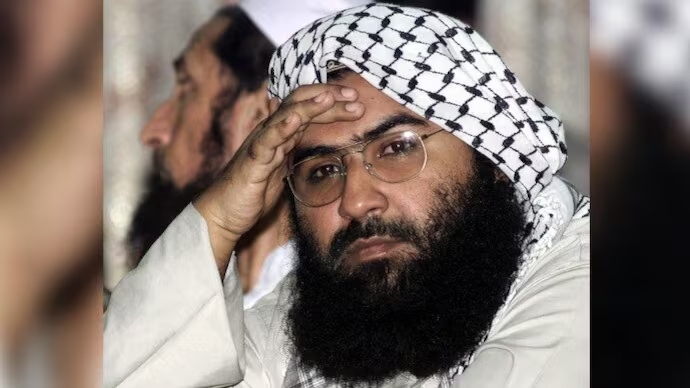Introduction
India’s Operation Sindoor continues to send shockwaves across the subcontinent as BBC Urdu confirms that Jaish-e-Mohammad chief Masood Azhar lost 10 family members and 4 close aides in Indian airstrikes. These precision strikes, carried out using Rafale jets armed with SCALP missiles and HAMMER bombs, targeted terror camps in Pakistan and PoK in retaliation to the Pahalgam attack that killed 26 Indian civilians.
Subhan Allah Camp in Bahawalpur Obliterated

One of the most devastating strikes occurred at the Subhan Allah camp in Bahawalpur, a known JeM hub. This 18-acre compound—also known as the Usman-o-Ali campus—was flattened. Among the deceased were Azhar’s elder sister, her husband, several nieces and nephews, and their children.
BBC Urdu reports confirmed the complete destruction of key structures, including the Jamia Masjid housed within the camp. This site functioned as a recruitment and indoctrination center for JeM.
Precision and Impact
Between 1.05 am and 1.30 am, Indian Rafale jets launched a barrage of attacks. In Muridke, a major Lashkar-e-Taiba (LeT) base, the Masjid wa Markaz Taiba was also hit, reportedly killing at least 30 terrorists. Overall, sources estimate 70–80 terrorists were neutralised in coordinated strikes.
Who Was Targeted and Why?
The primary motive behind Operation Sindoor was to eliminate high-ranking operatives involved in plotting attacks on Indian soil. The Bahawalpur strike is believed to have disrupted an upcoming coalition between JeM and Hamas. Intelligence sources claimed JeM’s Rauf Asghar had recently met with Hamas commander Khalid Qayoumi shortly before the Pahalgam massacre.
Masood Azhar: A History of Terror
Masood Azhar, born in Bahawalpur and living in a heavily guarded compound, is the mastermind behind several high-profile terror incidents, including:
- 2001 Indian Parliament attack
- 2016 Pathankot Air Base assault
- 2019 Pulwama suicide bombing
Azhar was one of the terrorists exchanged during the Indian Airlines Flight 814 hijacking in 1999, a crisis that remains one of the longest hostage standoffs in Indian history.
Jaish-e-Mohammad chief Masood Azhar said that 10 members of his family and four aides were killed in Indian strikes in Pakistan’s Bahawalpur, BBC Urdu reported. India struck nine terror camps linked to Jaish, Lashkar-e-Taiba and Hizbul Mujahideen in Pakistan and Pakistan-occupied Kashmir at 1.05 am on Tuesday. The strikes on the Subhan Allah complex in Bahawalpur were one of the two significant ones as part of ‘Operation Sindoor’, India’s response to the Pahalgam carnage in which Pakistan-backed terrorists killed 26 people, mostly tourists.
Those killed include Azhar’s elder sister and her husband, his nephew and his wife, another niece and five children of his family, BBC Urdu reported, citing a statement by the JeM chief.
The statement added that a close aide of Azhar and his mother, and two other close associates were also killed in the Indian strikes.
Bahawalpur is the 12th largest city in Pakistan and is located 400 km from Lahore. The Subhan Allah camp, which houses the Jamia Masjid, has turned into rubble as visuals exclusively accessed by India Today showed. Gaping holes, debris everywhere are what remains of the mosque inside the Subhan Allah camp.
Spread over 18 acres, the camp is also known as the Usman-o-Ali campus, which serves as the JeM’s centre for recruitment, fundraising, and indoctrination.
Civilian Casualties and Government Response
Amid cross-border firing following the strikes, 10 Pakistani civilians have reportedly been killed and 33 injured. Indian Home Minister Amit Shah ordered immediate evacuation operations near LoC to protect Indian civilians from retaliatory fire.
Conclusion
India’s Operation Sindoor marks a new era in its proactive counter-terror strategy. By targeting leadership and infrastructure deep within Pakistan’s territory, it sends a clear message: state-sponsored terrorism will be met with decisive force. As Prime Minister Modi monitors developments from 7, Lok Kalyan Marg, a press briefing is expected to detail future countermeasures.
For background on related events, see our coverage of the Balakot retaliation and India’s policy of proactive defence through surgical strikes.










